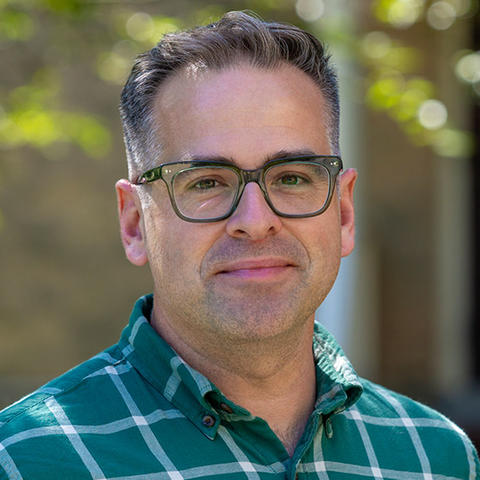Carolena Muno '23 Receives Clementine Cope Fellowship

Details
Muno heads to Sidney Kimmel Medical College in Philadelphia, where she’ll join its population health track.
Medical school comes with a significant price tag, but as Carolena Muno ’23 prepares to enter Philadelphia’s Sidney Kimmel Medical College, she’ll be supported by the Clementine Cope Fellowship. Established in 1899, it assists “worthy and promising” Fords as they pursue a master’s, doctoral, or professional degree within any discipline.
The anthropology major and health studies minor will join Sidney Kimmel Medical College’s population health track this fall. She points to her experience in 2020 as a summer assistant at the Seattle Indian Health Board for inspiring her to pursue that path. At the height of the COVID-19 pandemic, Muno says, she witnessed a parallel crisis among the young people she was working with who were victims of violence in their homes and communities. Beyond lasting barriers to emergency treatment, she says, most also lacked access to violence prevention and recovery resources.
“I could see how the negative reverberations of childhood violence continued without culturally attentive and trauma-informed healing resources,” says Muno, who, as a medical practitioner and public health professional hopes to bolster access to such resources. “That experience centered a professional commitment to provide more comprehensive and culturally competent resources for communities affected by violence.”
Like many of their peers during the pandemic, the young people receiving services from the Indian Health Board had also fallen behind in their academics, a situation made all the worse by COVID-related program closures. Alongside her coworkers, Muno helped develop new curricula to aid them in achieving their learning goals. They were guided, she says, by Indigenous traditional medicine specialists who gave Muno a new perspective on health and well-being.
“Coming from a Western background, it really started to illuminate for me how culture and community — and access to both of those things — is a means of healing and medicine,” she says. “That experience shifted the trajectory of my career.”
Since her sophomore year, Muno has been a key researcher at Children’s Hospital of Philadelphia’s Center for Violence Prevention. In that role, she’s been closely studying the efficacy of the hospital’s treatment and subsequent programming that supports young people who have received treatment for violent injuries in its emergency department. Much of her work, she says, has been focused on synthesizing and analyzing collected data for inclusion in manuscripts and papers that detail emerging best practices for violence prevention. They’ll soon be distributed to organizations focused on violence prevention that want to base their work on proven practices.
During her final year at Haverford, Muno studied with Associate Professor of English Lindsay Reckson in her “Poetics of Abolition” class, which examined incarcerated people's writings. Muno says the course left her thankful for an academic experience that encouraged her to pursue justice-oriented work. Muno also participated in a summer experience funded by the John B. Hurford ’60 Center for the Arts and Humanities, which paired her with the Philadelphia-based organization Beyond the Bars, which offers music programming for incarcerated and system-involved young people.
Before those two experiences at Haverford, says Muno, she had not fully understood how her focus on violence prevention is intertwined with the trauma that surrounds violence and incarceration and the families who have been affected by both. Her work with the organization informed her senior thesis, which envisioned sustained community-based violence prevention efforts.
“I am immensely grateful for how Haverford altered my vision of the world and my desire to generate positive change within it,” Muno says. “It is an honor to have the opportunity to extend those changes further into the world on my personal and professional journey.”
In addition to Muno, Ahlam Houssein ’24 received a Cope Prize to support her graduate studies.




